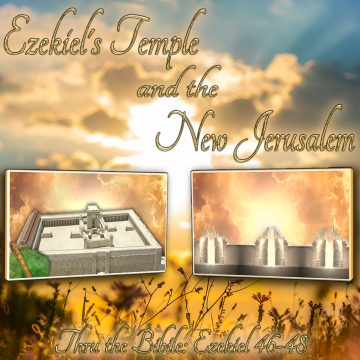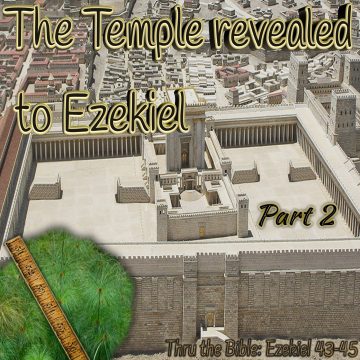Thru the Bible: Zechariah 9&10
Nearly 200 years from the time of this prophecy Greece would run a circuit all around Judah, making war and conquoring but leave Israel untouched. Tyre was to be a major part of that campaign. The last land to be actually conquored would be Persia itself thus bringing the empire’s dominion to an end all under the leadership of Alexandar the Great.
This prophecy is a starting point. It moves on past Alexandar and the Grecean Empire to the time of the Maccabean revolt when Israel would achieve independance from Greece, just before Rome took their place.
All of this was prophecied by Daniel MANY years before Zechariah, but Zechariah’s served both as a witness to these things AND added more details about this time.
In this prophecy greater Israel, meaning the Northern Kingdom is represented in Ephraim and the southern kingdom in Judah.
Continue reading




